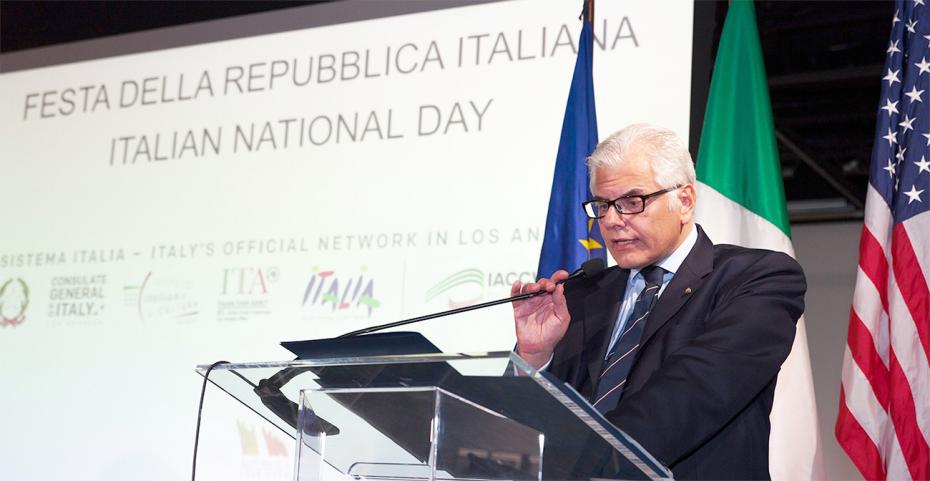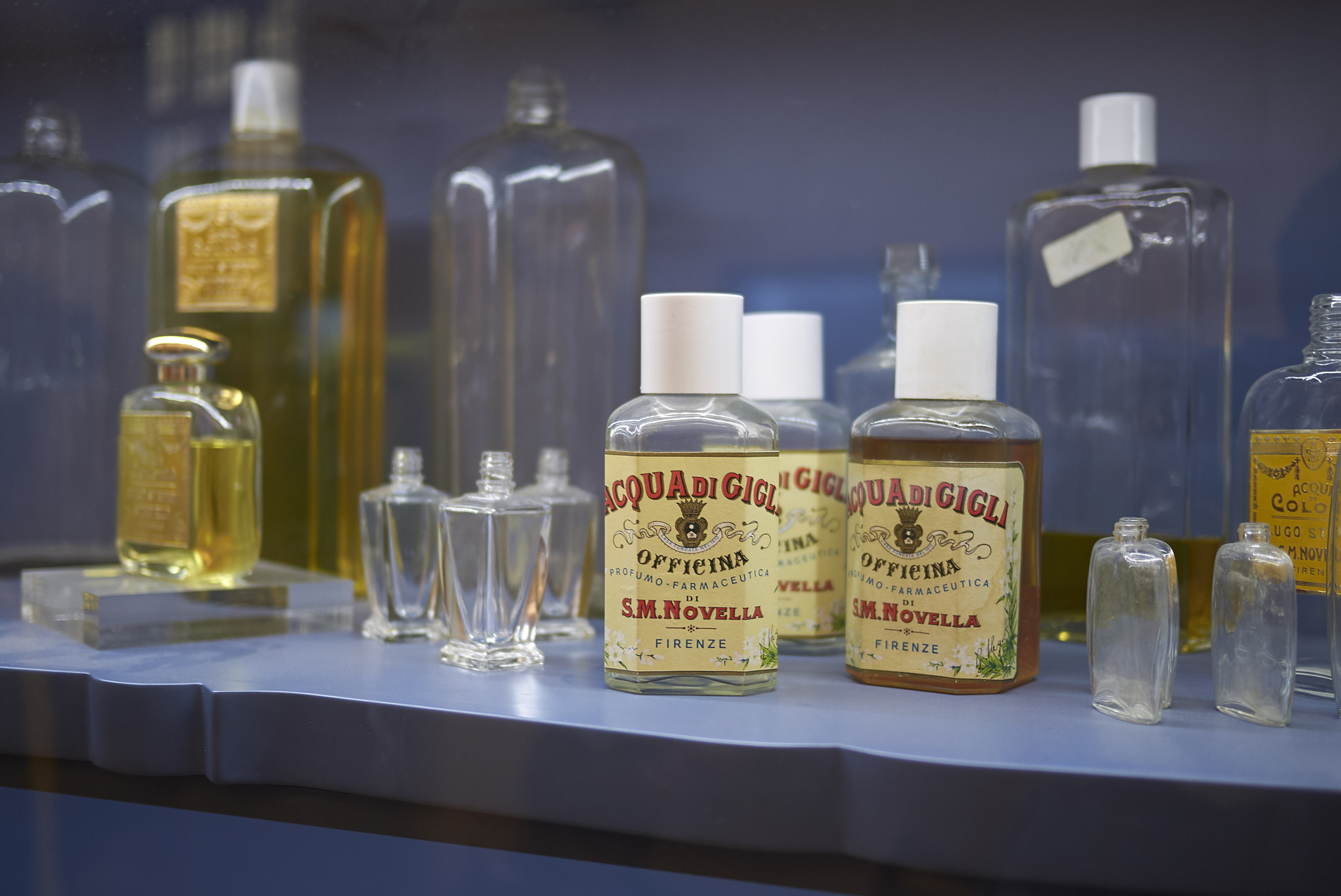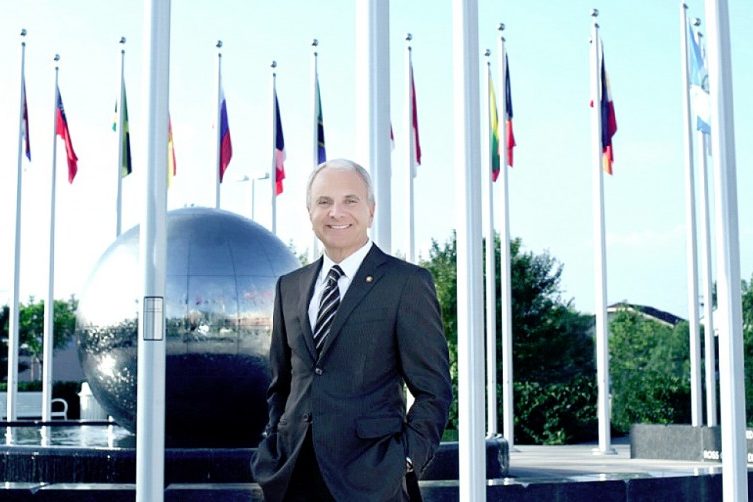A month ago, Antonio Verde began his mandate as Consul General of Italy in Los Angeles, with jurisdiction also over Arizona, New Mexico, and Nevada.
His term of office will hopefully last 4 years, allowing him to implement a complete and well-structured program of activities, aimed at improving the relationships between the citizens and the diplomatic institutions, as well as at promoting the Italian language and culture in the U.S.
Interviewed by L’Italo-Americano, he shared details not only on his previous experiences working with the Italian government, but also on his plans for this new American adventure.
You’ve just taken office in Los Angeles as Consul General of Italy. Can you tell us more about your background?
After graduating in Political Science with a focus on the Middle East, I worked in the publishing and banking sectors for a few years, and in 1990 I joined the Italian Ministry of Foreign Affairs. Considering my specialization in Asian economy, my first assignment abroad was in Tokyo, Japan, from 1992 to 1996. The following was in Moscow, Russia, in the years 1996-1999, during the transition from Boris Eltsin’s government to Vladimir Putin’s. That was quite a difficult historical moment for the local population, but for me it was also interesting and challenging from a professional point of view.
When I returned to Italy, I engaged in ministerial projects relating to information and new technologies and cooperation for development, until I was selected as Consul General of Italy in Sidney, Australia. There, I had the opportunity to become acquainted with a vibrant and active Italian community, more recent but in many ways similar to the American one.
Before leaving to L.A., I worked in the fields of human rights, democracy, and the rule of law in Strasburg, and finally I was in charge of the department of energy and environment at the Ministry of Foreign Affairs.
What is your first impression of the city and the local Italian community?
From what I could see in the last month, the Italian community of the West Coast seems to be very close and inclusive. Different generations, from first immigrants to young expatriates, get together and participate in the life of the community through their work, their initiatives and associations. Without denying what has been done in the past, such collaboration represents a valuable asset for the Country.
Nowadays, the young generation of Italian Americans is rediscovering an appealing image of Italy and proudly reaffirming family origins that were often concealed in the past decades, due to a stronger need to integrate in the society. After all, Italy isn’t the stereotype of a 1950s rural country anymore, but rather one of the most industrialized nations in the world, boasting a tradition of excellence in art, fashion, cinema, technology, and much more.
As far as L.A. is concerned, my first impression is very positive thanks to the beautiful weather and friendly population, and I’m afraid that it won’t be easy to leave this city when the time comes. Traveling the world with my job has pros and cons!
In your opinion, how can Italian culture stand out and beat the competition in a multicultural city like L.A.?
The city’s huge offer in terms of cultural initiatives and events is certainly challenging, but it also makes us more competitive and motivated. Furthermore, our commitment to promoting Italy in different sectors, from culture to production and trade, must rest upon the Country’s strengths: quality, creativity, and teamwork. And this is particularly true abroad, when we manage to put individualism aside.
To this end, the Consulate coordinates its activities with the other Italian Institutions in Los Angeles, including the Italian Trade Agency, the Cultural Institute, and the Tourism Board, as well as with the Italian Chamber of Commerce and Industry. Such a synergy is essential to present a shared and coherent image of contemporary Italy to the U.S. public.
Extremely important is also the cooperation with the U.S. Institutions and the Honorary Consulates serving in California and in neighboring States.
Could you name the main objectives of your mandate in the U.S.?
First of all, despite the budget cuts currently affecting the Public Administration, the services offered by the Consulate must be efficient and adequate to meet the needs of the public, meaning both Italian citizens and foreign nationals who have interests in our Country.
Also vital is to increase the number of Italian language students, in particular through the Advanced Placement program, as they represent a bridge between Italy and the U.S. in terms of future economic or cultural relationships.
In regards to the local Italian American associations, my intention is to intensify the cooperation between them and the diplomatic network, with the goal of supporting Italian economic, cultural, and scientific operators in the U.S.
Another objective is the implementation of a rich and sound cultural program in the wake of 2013 Year of the Italian Culture in the U.S. This also includes the promotion of Expo 2015, focusing on crucial topics for both California and Italy such as nutrition, the environment, and sustainability.
Would you like to send a message to L’Italo-Americano readers?
I would like to invite the whole community to actively engage in improving the consular services by addressing their requests to us, giving us advice, and helping us understand their needs.
Overall, I can feel a positive approach towards the Italian Institutions based in L.A., thanks to the efficiency of the office and dedication of a very motivated staff, despite the limited resources.
In particular, I would like to encourage our fellow citizens residing in the U.S. to participate in the upcoming election of the local COMITES, which has been postponed until next Spring in order to increase the number of registered voters. The COMITES represent an important instrument in the service of Italians abroad and an intermediary to ensure an even more streamlined relationship with the Consulate itself.





























